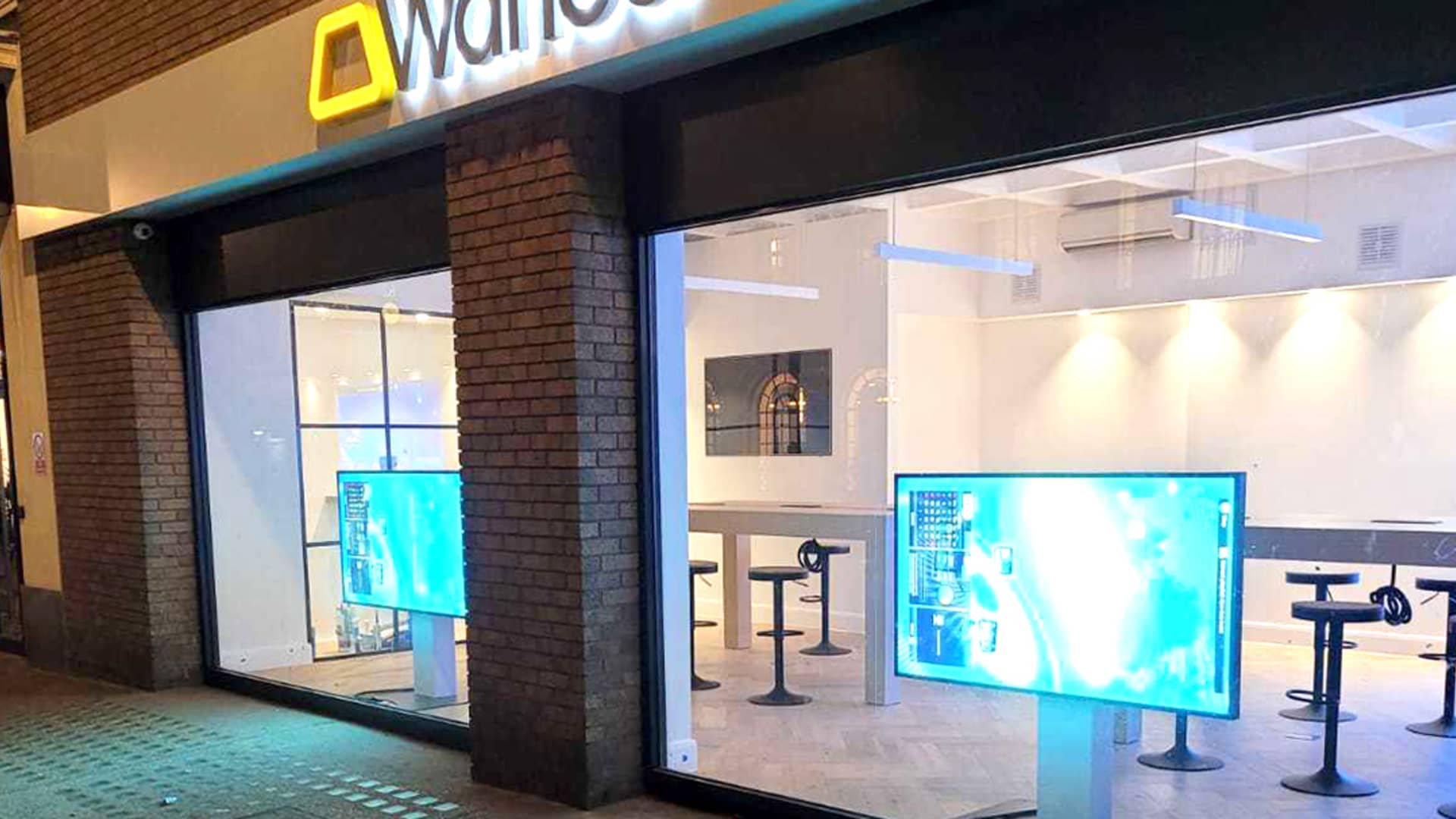An investing platform backed by the likes of oil giant Saudi Aramco and French soccer player Paul Pogba is launching a novel proposition in the U.K.: a physical branch and bank accounts backed by gold.
New York-based Wahed, which describes itself as a “halal investing platform,” has opened a branch in the U.K. in a bid to target the country’s 3.9 million Muslims with a sharia-compliant investment management and advice service.
The glossy retail location has a similar design to an Apple store, with digital displays inside and a bright sign displaying its logo outside. It is located on Baker Street in central London, just opposite a branch of U.K. banking giant HSBC.
Khabib Nurmagomedov, the Russian former professional mixed martial artist, is a promoter of the firm and will be among those attending the branch opening Tuesday.
Wahed is also debuting a debit card that lets users deposit funds with an exchange-traded commodity that tracks the price of gold, meaning they can effectively pay for everyday goods via gold.
Investors will be able to redeem the gold in their accounts for physical bars. Junaid Wahedna, CEO and Co-founder of Wahed, said it’s a way for Muslim — as well as non-Muslim — consumers to beat currency fluctuations and the rising cost of living.
“[Muslims are] an underserved community as a whole,” Wahedna said in an interview with CNBC, referring to the market opportunity for digital Islamic finance. “It’s a minority community, there’s a lack of financial literacy.”
Banking startups such as Monzo and Revolut have flourished in the U.K. without physical bank branches, offering smartphone apps that help users manage all their finances. But Wahedna cautioned that this risks leaving behind Muslim consumers.
“In the United Kingdom, [the Muslim community is] actually one of the lowest socio-economic segments of the country,” Wahed’s boss said, with “low incomes or financial literacy.”
“They have trust issues,” he added. “And so they want to see a physical presence before they trust you with money.”
Wahed’s service aims to help clients adhere to the Islamic faith’s strict doctrines on financial services: sharia law forbids its followers from charging or earning interest on loans, or investing in firms that make most of their money from the sale of things such as alcohol and gambling.
Wahed prohibits investments in companies that make money from lending, gambling, alcohol and tobacco. An account with Wahed also doesn’t offer interest on savings, nor does it tout wild returns on risky crypto tokens. Instead, the value of users’ deposits tracks the value of gold, with the precious metal fluctuating in price depending on supply and demand.
“I think it really fits with the Muslim community and what their needs are,” Wahedna said. “Because otherwise, what happens is the Muslim community, because they’re underserved, they keep their money in cash under their mattress, or in something that’s very unsafe, and they lose their money every few years because there’s a scam in the community or someone takes advantage of them. And that poverty cycle just continues.”
CEO slams lending-focused fintechs
Junaid slammed the state of modern fintech companies, suggesting that the industry is too focused on consumer lending with the rise of Klarna and other hyped “buy now, pay later” services.
“All of their business plans are built around lending revenue, right? Even digital banks, it’s like, okay, I’ll start off being a new bank, but then eventually, I’m gonna get a banking license,” said Wahedna.
He said Wahed is focused on making money by charging wealth management fees, which charge users a percentage of their overall asset holdings. The startup, which was founded in 2017, remains lossmaking, but has hit operating breakeven in Malaysia and the U.S., he added.
“I feel that fintech, like most of the finance industry, is very heavily geared towards lending,” Wahedna said. “In fact, I would say, it’s making the cost of living crisis, a debt crisis, worse with a lot of the products.”
“If you look at the buy, now pay later companies, people are struggling — that’s the worst type of innovation, you’re making it easier to get people into debt,” he added.
Wahedna stressed that the company is not only for Muslims and aims to serve followers of other Abrahamic faiths as well, including Judaism and Christianity.
Staff at its London branch will help customers open accounts, make investments and give guidance on wills and estate planning.
The firm is targeting high-net-worth individuals as well as less well-off consumers, Wahedna said.
Wahed has raised $75 million of total funding to date from investors including Saudi Aramco Entrepreneurship Capital, the venture capital arm of Saudi state-backed oil firm Saudi Aramco, as well as French footballer Paul Pogba, who is a practicing Muslim.
Islamic finance has achieved significant growth over the past decade and is expected to reach $4.9 trillion in value by 2025, according to Refinitiv’s Islamic Finance Development Indicator. A number of other fintech players are seeking to tap into the halal money space, including Zoya and Niyah.
